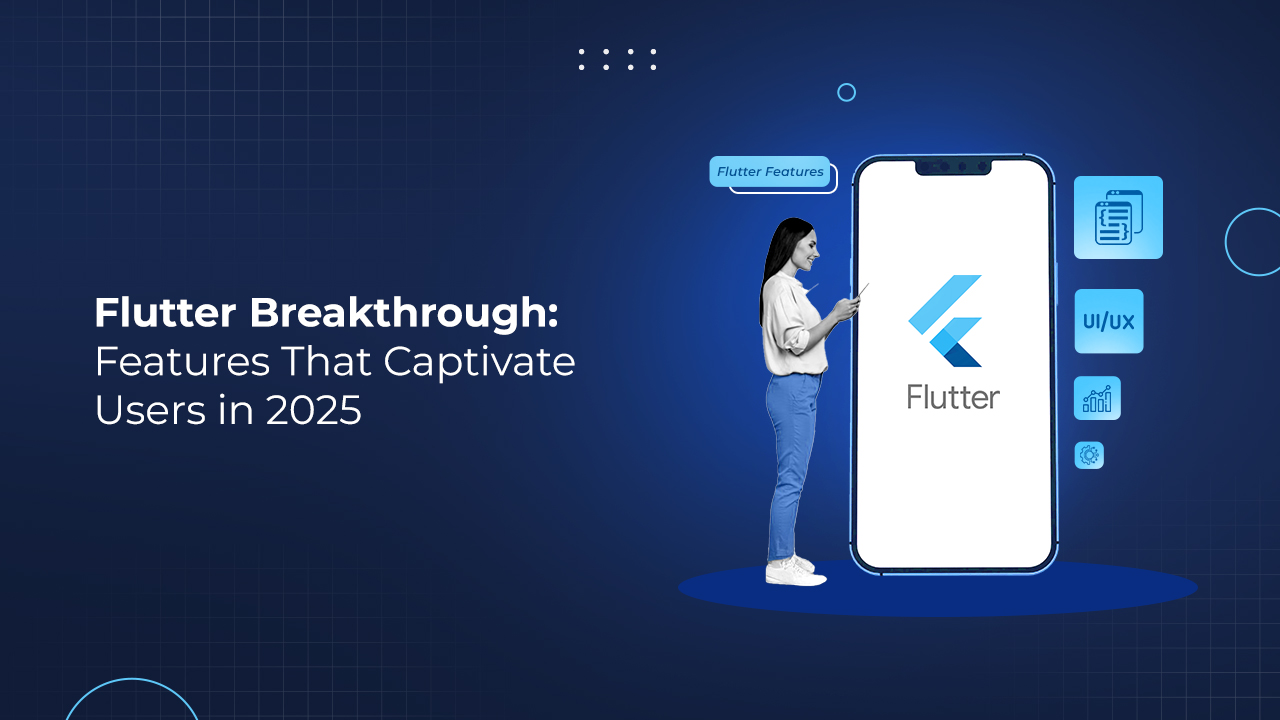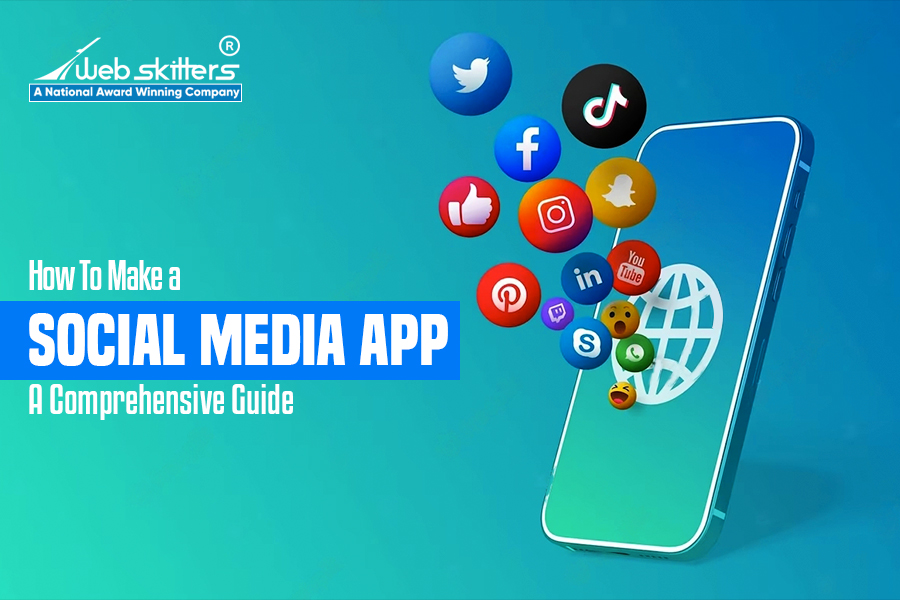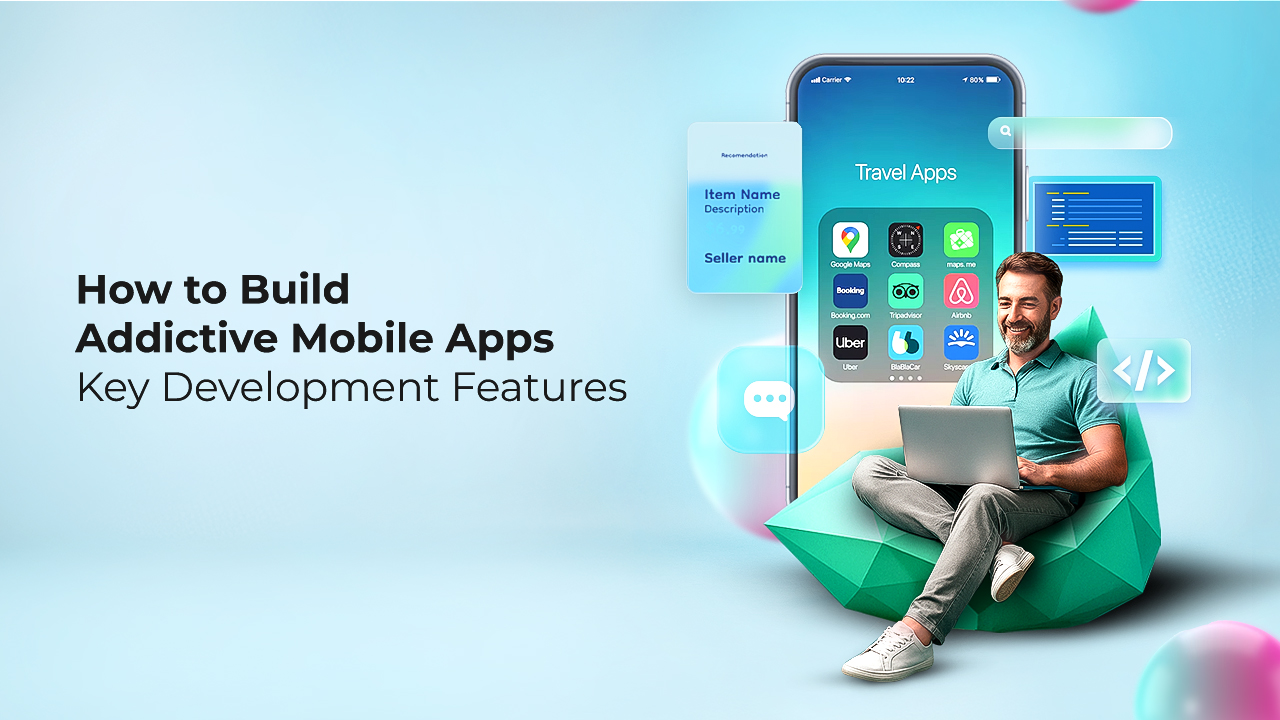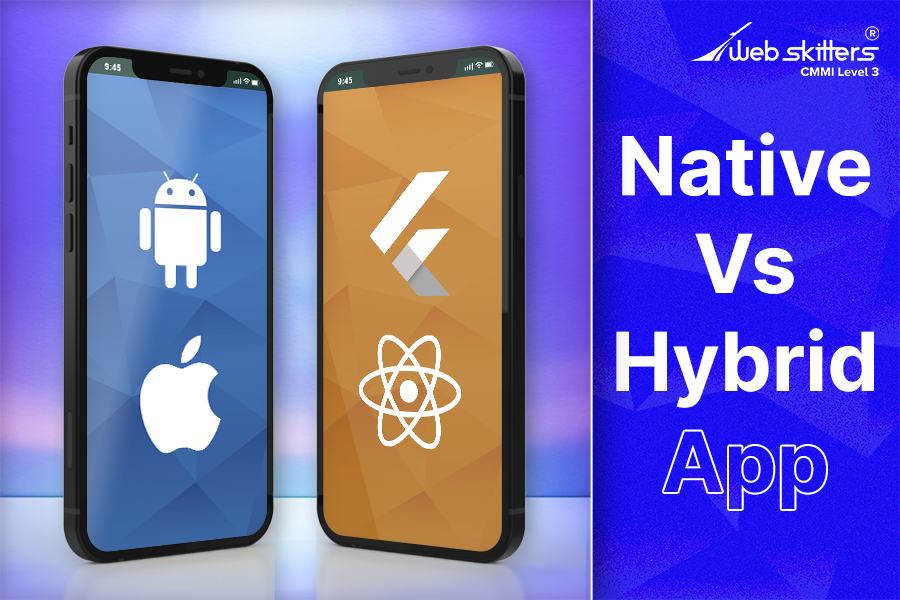
Native Vs. Hybrid App – A Comparative Study
Introduction
One of the greatest advancements in technology now is Mobile Application. Not only they have made our lives easier but also mobile applications are giving new edges to both multinational business organizations as well as start-up firms. In other words, mobile applications are the dominant innovations for more than a decade now. While the smartphone market is booming day by day, more and more organizations are aligning mobile apps to their workflow.
As a business owner, the idea of creating an app seems to be an excellent idea. However, while deciding on developing a mobile application, the business owners face a common dilemma – whether to go for Hybrid App Development or Native App Development. Needless to say that each of these two has its own advantages and disadvantages and This blog has attempted to compare and contrast Hybrid apps and native apps and also elucidated which one is better for the business owners. Stay tuned and keep reading.
What Is A Native App?
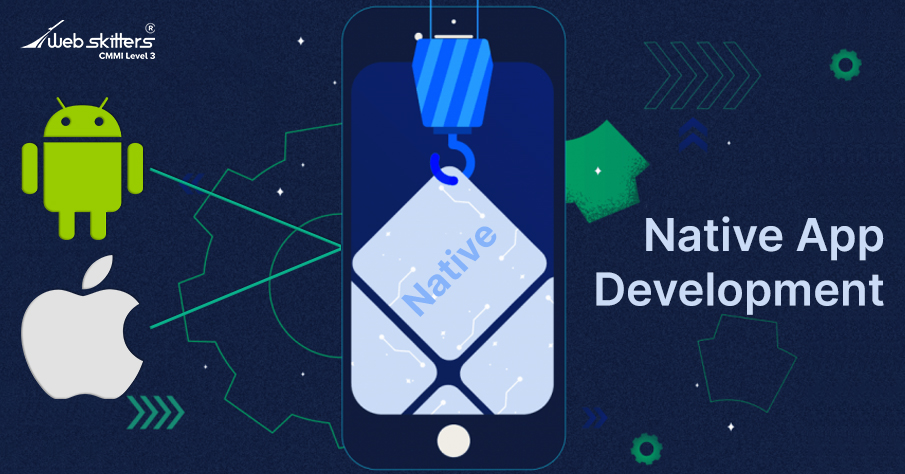
A native application is one type of software program developed in a particular programming language for a distinct platform or device –Android, Windows or iOS. As apps like these are developed to operate on a specific operating system, they follow a procedure to use device-specific software and hardware.
Typically there are two operating systems for mobile applications – Google’s Android, Window’s Microsoft Store, and Apple’s iOS. Native apps are designed with specific codes and are predominantly used for specific operating systems. As for example, a mobile app developer will code the iOS apps with Objective-C or Swift, while the Android apps with Java.
Native apps utilize the latest technology, for instance, Image Processing, to deliver enhanced performance. Furthermore, they are designed in such a way that they can perform universally across various mobile devices thereby enabling the users to get access to all forms of native User Interfaces (UI), layouts, and controls. With a high degree of accuracy, such apps have a quick execution.
Nonetheless, Native apps are code and device-specific; that is, they are developed using software development tools for specific hardware platforms, and software frameworks. This refers to the fact that an application created using Swift for iOS won’t function on Android phones or Windows phones and vice versa.
What Are The Characteristics Of Native App?
Native apps are directly installed onto the device and users acquire them through online marketplaces such as Google Play for Android apps, Microsoft Store for Windows and App Store for iOS apps.
The section below highlights the characteristics of Native apps – check these out:
- User Interface
A native user interface (UI) is where the application is built for a particular device or platform. The UI of the native apps is designed in a personalized way to feel and look great on those devices only. They are more intuitive and faster than those apps designed for different platforms.
- Development
Be it iOS, Windows or Android, every mobile application development platform has its own development criteria as well as processes. In addition, the native application development programming language also varies from one platform to another. For example, there is Java for Android, Objective-C for iOS, or Visual C++ for Windows.
- Capabilities
Native apps can interface with the native features, native hardware (accelerometer, camera, voice, GPS, and device pairing), and native information of the device as and when required in order to function properly. That is why they are made device-specific and operating-system-specific.
- Mode of Delivery
Native apps are downloaded onto particular mobile devices. After installation, they run as a standalone application while the users must download and install the app updates manually from specific stores or marketplaces. For instance, if you want to download an app on your iPhone, you’ll have to visit App Store. On the other hand, for Android devices, you need to download the applications from Google Play Store.
- App Versioning
Native apps are periodically updated and the newest features are shown on Google Play Store or App Store. Users sometimes may ignore an update resulting in different users using different versions of the app.
- Fewer Bugs During Development
With native app development, you will have a less number of dependencies for bugs since there is no cross-platform tool involved. Native app developers are provided with access to the newest Software Development Kits (SDKs) to build applications with the most modern technological particulars and that also free of bugs. Due to its lead time, the native application users can access the latest platform features as soon as they update their operating system.
Advantages And Disadvantages Of Native App
The development of mobile apps is a matter of huge investment since a plethora of resources is involved. As a result, it’s really essential to know the advantages and disadvantages of Native apps beforehand to understand which type will fit your business requirements.
Here is a detailed evaluation of the advantages and disadvantages of native apps.
1. Advantages Of Native App
Native app development can be a great option for you if you want to offer your customers the best experience from the perspective of appearance and feel. When an application follows the specific instructions for the reputed platforms, users get to know the ways of using it quickly.
Here are some of the advantages of Native apps. Take a quick look:
- Security
One of the best strengths of Native apps is that it’s secured by multiple layers of an operating system. Moreover, they are not dependent on the third-party systems which make them hard to be misused. Due to its accessibility to in-built platform-specific security features, it’s more safeguarded.
- Maintenance
When it comes to maintenance, it’s a bit complex, as the latest versions of the apps keep launching; although, the users keep getting the latest information about the newest updates easily. In addition, the native apps, after installation, upload the maximum content which ceases the need for continuous upgradation.
- Performance
Native applications are faster, more responsive, and offer a refined user experience. They operate quickly and deliver the best performance. It’s because languages specific to the platform’s ecosystem are used to write the codes. Also, these apps have access to unique optimized APIs for which they run seamlessly.
- Fewer Bugs
It’s quite complicated to maintain two different apps in one codebase than two apps in two individual codebases. A native mobile app developer doesn’t depend on cross-platform tools due to which there are lesser bugs. Furthermore, the native app development now involves the use of SDKs to incorporate the most advanced features into the apps.
- Scalability
The configurations of the native apps are pretty quick due to their compatibility with a single, specific platform. If there are two different native assignments, you don’t have to worry about the app compatibility between the versions of different platforms. Eventually, you can enjoy each new feature on a given platform. Hence, with fewer constraints, they are easier to scale.
- Stability
Platforms like iOS and Android totally assist the native applications. Hence, they are more stable in terms of maintenance, usage, and app development. Users will find the app performing seamlessly with fewer glitches and crashes.
- Offline Performance
Choosing native is the best option if you want your users to operate the apps even if there is no connectivity. Apps such as navigators, organizers, planners, and even some games can perform offline since their content is already downloaded.
2. Disadvantages Of Native App
Apart from the benefits explained above, there are some drawbacks of the native apps that users come across often. Here is a quick rundown of the advantages of Native apps:
- Lengthy Download
The downloading procedure of a native app includes a number of steps – going to the app store, finding the app, reading its terms and conditions, accepting them, and then finally downloading it. On an average, 20% of users are lost at each stage of the app funnel.
- Expensive Development
The programming languages used for developing native apps are a bit intricate. The developers having expertise in these codes are hard to come by. Therefore, native app development needs more time and labor which ultimately adds to the cost of development. Furthermore, with separate codes for separate platforms, the procedure of native mobile app development becomes expensive.
- Lesser Flexibility
A native mobile app developer has limited flexibility and a number of restrictions regarding the platform. The biggest drawback here is that the developers have to write unique codes for one platform at a time for Windows, iOS and Android. Hence, most of the time, you’ll need to hire two separate teams of developers with different skill sets such as Kotlin Developer or React Native Developer.
- Frequent Upgrades
Updates do a range of things to apps such as improve stability, performance, and efficiency, add newer capabilities, fix bugs, and many more. In the case of native apps, they require a series of updates. The developers first submit the updates to the marketplace and then users will have the chance to upgrade their apps to the latest versions. In case, users take no notice of the updates, they might stop using the app due to unresolved glitches.
What Is A Hybrid App?
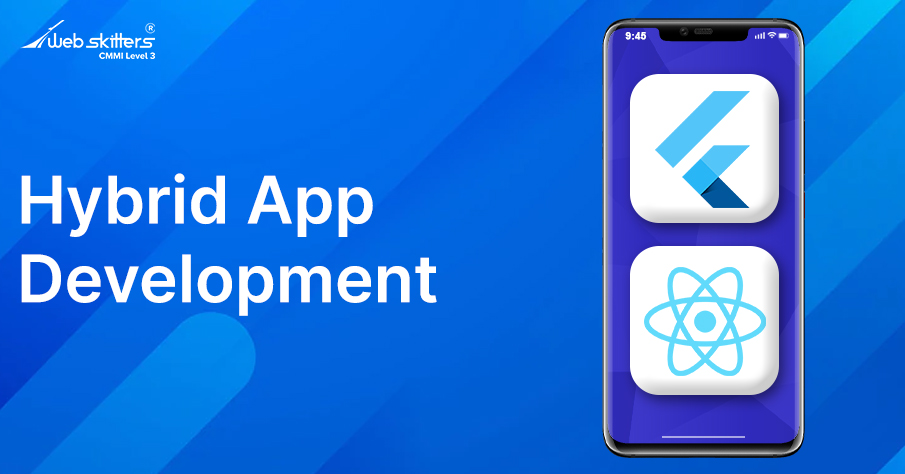
A hybrid application is a software program that combines elements of both web applications and native apps. Because hybrid apps fall in between the array of web apps and native apps, they share the properties of both, thereby giving some clear advantages to this middle-of-the-road approach.
A hybrid app is simply a web app with a lightweight native app “container” that enables it to use native platform capabilities that a web application can’t access. This includes the device’s calendar, camera, spread functionality, push notifications, and pinch. Hybrid apps, like those on the web, are created using popular front-end development tools and languages like JavaScript, HTML5, and CSS, providing them with cross-platform capabilities.
One of the biggest positive sides of hybrid apps is that you can build Android, Windows, and iOS apps without writing distinctive codes for each. In this way, you will have three apps at the same time – efficient utilization of time and resources!
With the constant changes in the world of mobile app development, hybrid development is consistently improving at an exponential rate. Eventually, it is becoming an attractive choice in the app development market.
What Are The Characteristics Of Hybrid App?
Hybrid application development is all about blending the web and native development technologies correctly to bring life to your application. The core app code in a typical Hybrid one is written with CSS, JavaScript, and HTML which are encapsulated into Webview – a container. Because of their hybrid nature, their characteristics are manifold.
The points below elaborate on the main features of Hybrid apps:
- Single-Code Base
One of the most predominant characteristics of hybrid apps is its single code base for different platforms – Android or iOS. This cross-platform compatibility makes these apps pretty easier to manage.
- Cost-Effective
The development costs of hybrid apps are pretty less. It’s because, once a hybrid app framework code is developed, you can reuse it across all other platforms. Nevertheless, they do need some further maintenance and development as the requirements change with time.
- Less Time Consuming
Hybrid apps can be developed at a faster pace. It’s mainly because of its single code base that allows reusing the code and cross-platform compatibility. Hybrid apps are therefore comprehensive and are possible to be managed effortlessly.
- Easy To Integrate
Hybrid apps can easily integrate with the device’s file system and use the features of the operating system. Additionally, they involve integration with the web-based services and also an embedded browser that facilitates access to the dynamic online content.
- Offline Performance
Hybrid apps can perform seamlessly even if the device gets disconnected from the internet. As the content remains downloaded previously, these apps can perform in offline mode.
Advantages And Disadvantages Of Hybrid App
It’s evident that hybrid apps combine both the elements of web apps and native apps and are deployed in a native container. The core of the application is written with the help of web technologies such as CSS, HTML, and JavaScript. These apps can also access the mobile device’s features.
To better understand Hybrid apps, take a look at their benefits and drawbacks elaborated below:
1. Advantages Of Hybrid App
There are several great things about hybrid apps that make the developers and business owners give these applications preference over the native apps. Since they possess the attributes of both native and web apps, they have positive sides of both types.
Check out the key advantages of a Hybrid app in the points below:
- Lower Development Costs
The development of a hybrid mobile app is extremely cost-effective. They get the job done relatively quicker than any other web or native mobile application. With the multiple mobile app development frameworks and a set of libraries, the hybrid mobile app developer optimizes the development process to reduce the overall time and costs.
- Enhanced UI/UX
A hybrid app’s recognition in the market is based on a single crucial factor – “A reliable user experience.” Since it’s the amalgamation of web technology and a native execution, it displays the data at a faster rate and adjusts the altered device screen configurations. On top of that, hybrid apps also solve the issues of random data streaming abilities. Plus, it’s so lightweight that the hybrid UI can be easily loaded into it with useful content and High-definition (HD) graphics.
- Useful Offline Data And Information Support
Hybrid apps store the device APIs to save all the offline data and information that further helps in loading the apps smoothly. Apps like these download content that users can obtain when there is no connectivity. Nonetheless, there is a limit to offline data usage.
- Effortless Integrations
Just like the native apps, hybrid applications drive the inner programming solution of a device like messaging, GPS, camera, etc., with an overlay. It facilitates the synchronization with other apps, therefore, eliminating the integration issues of the developers.
- Ease Of Maintenance
The main objective of developing hybrid app is to use every accessible feature in the mobile device. A hybrid application bypasses the versioning and makes the application as simple as updating a webpage. This level of flexibility increases the scalability of the app, thereby making it easier to maintain.
2. Disadvantages Of Hybrid App
It’s true with the growth and maturity of mobile-based users, fragmentation of devices, and rise in application usage, the demand for hybrid apps is augmenting. But, other than a series of advantages, there are several downsides of hybrid apps.
Below are some drawbacks that you must know:
- Test Complexity
Hybrid apps share many codes between the platforms but some of those codes are native to reap the benefits of the underlying hardware. This can invite complexity to your test suite.
- Performance
For a number of applications, performance is the same for native apps as well as hybrid apps. Nonetheless, for the HD and 3D games, performance-based apps, and those with high-caliber graphics, the performance might not be the same in the hybrid apps. There can be issues of lagging because they are run on multiple-operating systems causing interfacing complications.
- Easy to mess up the UI/UX
No matter whether an app is native or hybrid; it’s the duty of the developers to make sure the app’s user interface delivers a stable user experience. You will get a bunch of flexibility but there are high possibilities that they can get all messed up. A weak internet connection can lead to an unstable, inconsistent user experience.
Native Vs. Hybrid App – What Are The Differences?
A Hybrid app carries a number of features of the native app but differs from it in plenty of aspects. While both of them have their own features, benefits, and limitations, these differences make one option superior to the other under certain business conditions.
Below, a comparison between Native apps and Hybrid apps is conducted. Take a look.
- On The Basis of Cost And Time Of Development
Hybrid apps take minimum development time and are more cost-effective in nature than native apps. Moreover, the hybrid apps are quite easier to maintain due to their single code base, and cross-platform compatibility but native apps have specific code bases that cater to specific platforms.
- On The Basis Of User Experience
Native apps are designed for a particular app marketplace– Google Play Store, Microsoft Store, or App Store. As a result, they deliver a top-notch user experience. They also consider the criteria such as screen size and hardware capabilities in comparison to the hybrid apps where just one code base applies to all the platforms. In due course, for the later, the user experience gets messed up at times.
- On The Basis Of The Operational Platforms
If a business wishes to run its mobile application across different platforms such as Apple, Windows, Android, etc., it can choose a hybrid app because of its multi-platform workability. Plus, it will also save time.
Moreover, they are built with web technologies like JavaScript, CSS, and HTML. Oppositely, Native apps require distinctive programming language for every platform – such as Objective C or Swift for iOS, JavaScript for Android, or Visual C++ Windows. This takes a long time alongside a heap of human and financial resources. You will need to hire team of Swift developer or Flutter developer separately.
- On The Basis Of The Utilities The App Offers
Native apps are recommended for a business that wants to launch a paid app on the online app market. When it comes to the app utilities, native apps get a preference due to their amazing user interface. On the other hand, if a business wants to create free apps or open-source applications, it’s advisable to go for hybrid apps.
- On The Basis Of Number Of Users
There are a huge number of users of hybrid apps since it combines the users from every platform. The number of users of native apps, however, is limited to a single platform. Therefore, it’s evident that numerically, the popularity of hybrid apps is higher than the former.
- On The Basis Of Performance
Since the native apps are designed in accordance with the specific requirements of different platforms, it delivers the best performance and higher harmony with the other apps on the same device. Oppositely, hybrid apps often work slower as they are run on multiple platforms worldwide. Besides, they are found to be incompatible with the other device apps.
- On The Basis Of Updates
The upgradation in the native mobile apps is done from App Store, Microsoft Store, or Play Store. On the other side, for hybrid apps, the updates are centralized. This prevents the need for repetitive upgradation.
Which Is Better – Native App Or Hybrid App?
While native app development technology ensures the luxury of exploring native features along with a refined user experience, hybrid app development looks after the cross-platform performance of the app at a lower budget.
The comparative analysis above depicts that both of them have their own limitations and advantages. Now which one is right for your business can be decided only after evaluating your business requirements.
If you want to invest more time and money and get a high-performing, curated application, Native App is the better choice. But, if your budget is tight and there are also time constraints, you should choose Hybrid apps. Hence, it’s all about the priorities of your business.
Here is a brief summary of the conditions under which you need to make your choice:
When To Opt For Developing A Native App?
- When you’ll have to code specifically for a single platform.
- When you want to impress your target audience with the best app user experience.
- When you have to add functionalities that are device-specific – Camera, GPS, etc.
- When you are in a 3D game development business.
- When you want your app to be intuitive and easy to learn.
When To Opt For Developing A Hybrid App?
- When you are planning to make your app run seamlessly across various platforms.
- When you don’t have optimum time to build an application.
- When you plan to hand out a web app all throughout the app stores.
- When you have a larger base of target audience who are comfortable in using the app on both mobile and web-based devices.
- When you have a limited budget and have to wrap up the entire app-development cost within that amount only.
The Bottom Line
It’s evident that both Native Apps and Hybrid Apps have their own characteristics, benefits, and limitations. Now, your decision in terms of building a mobile web app or a native app depends on a number of factors such as your target audience, business objectives, technical requirements, and many others.
Of course, a fitness app will be significantly different than a hotel booking app if the mentioned criteria are taken into account. Therefore, these are some of the most important factors you have to take into consideration while deciding what type of app will be best suitable for you.
Webskitters Technology Solutions is your ultimate destination when it comes to creating faultless and highly functional applications accompanied by innovative features. With dedicated teams for hybrid and native app development, we provide tailored, customer-centric solutions to your business. Get in touch with our team of experts today and hire mobile app developer to get a seamless, engaging, customized application.

 Ecommerce Development
Ecommerce Development 
